|
|
|
Editor's note
|
|
Based on how often college athletes used to miss her class or sleep in it, sociology professor Jasmine Harris always had a sense that college athletes had little time for academics. Harris’s suspicions are being confirmed through her ongoing research that shows black college athletes at Division I schools spending triple the amount of time on sports that they do on schoolwork, raising questions about whether they are getting a real college
education.
When a hurricane like Michael hits, the immediate aftermath often makes headlines. But how do people fare in the weeks, months or even years after a natural disaster has come and gone? J. Brian Houston and Jennifer M. First explain how these events affect survivors’ mental health.
And if you’re the type who’s already spookified your home for Halloween and have a list of petrifying movies to watch between now and then, don’t miss University of Pittsburgh sociologist Margee Kerr’s explanation for why some people love to be safely scared. Boo!
|
Jamaal Abdul-Alim
Education Editor
|

|
|
Top stories
|
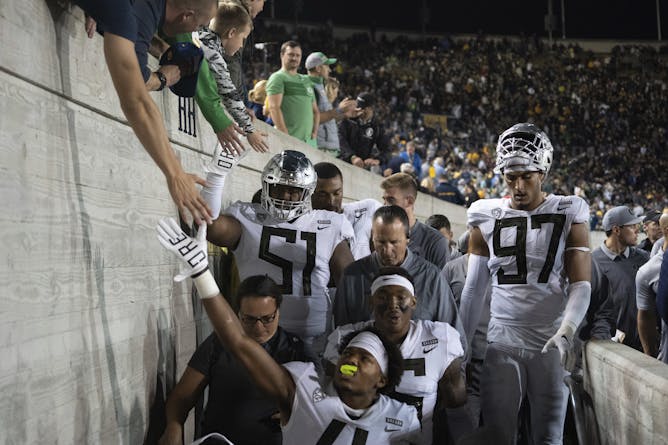
The demands of college sports often take precedence over education.
Don Feria/AP
Jasmine Harris, Ursinus College
Research shows student-athletes spend triple the amount of time on sports as on academics, raising questions about whether they actually benefit from a college education, a sociology professor argues.
|
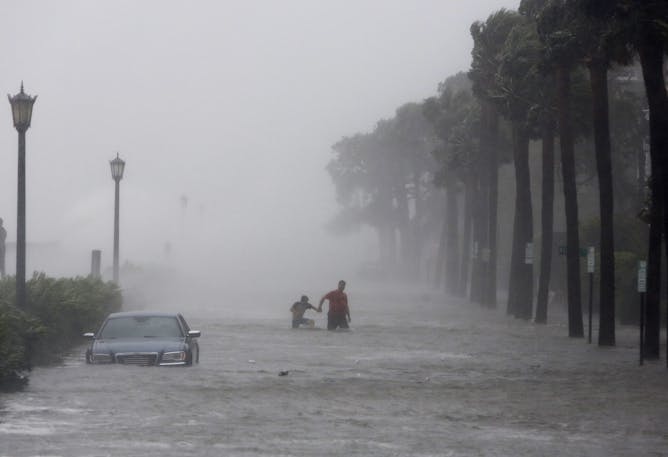
It’s a long road to recovery.
Mic Smith/AP
J. Brian Houston, University of Missouri-Columbia; Jennifer M. First, University of Missouri-Columbia
After the storm is over, it's time to rebuild – and natural disasters can affect survivors' health for years to come.
|
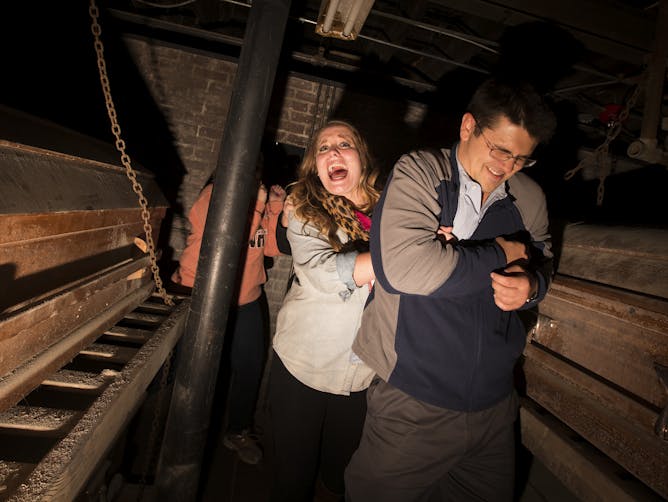
Visiting an extreme haunted house can be delightfully terrifying.
AP Photo/John Minchillo
Margee Kerr, University of Pittsburgh
Visiting a haunted house or watching a horror movie can be terrifying and enjoyable at the same time. A sociologist explains the psychological benefits of being safely scared.
|
Economy + Business
|
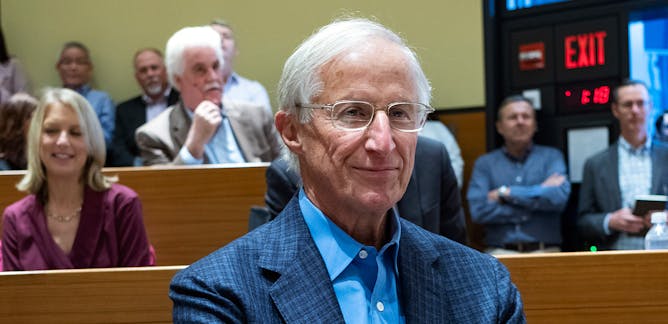
Andrew J. Hoffman, University of Michigan; Ellen Hughes-Cromwick, University of Michigan
William Nordhaus showed that the market offers the best chance for preventing global catastrophe form climate change.
| |

Carolin Schellhorn, St. Joseph's University
The rise of superstar companies that dominate their industries may be partly to blame for the lack of wage growth in the US in recent years. It could also suggest a solution.
|
|
|
Environment + Energy
|
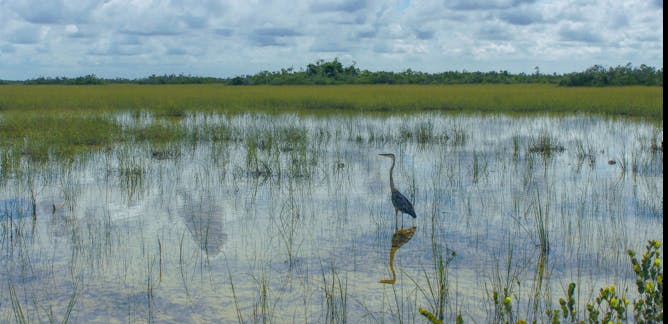
Siddharth Narayan, University of California, Santa Cruz; Michael Beck, University of California, Santa Cruz
Coastal development is destroying marshes, mangroves and other wetlands that provide valuable protection from hurricanes and storms. Research shows these benefits can be worth millions of dollars.
| |
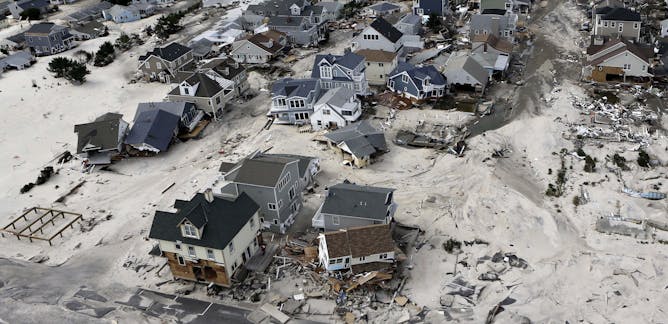
Howard J. Herzog, Massachusetts Institute of Technology
The UN's panel on climate change said that technologies to remove CO2 will be necessary to limit global temperature rise to only 1.5 degrees Celsius. But these techniques are largely unproven.
|
|
|
Science + Technology
|
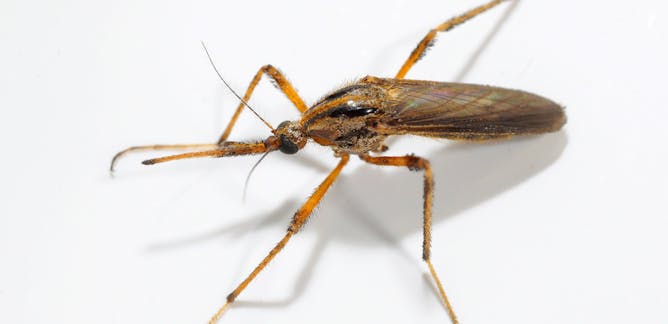
Michael Reiskind, North Carolina State University
Yes, giant mosquitoes are a thing. They're specialized to wait out the dry times only to emerge from their eggs when high water provides the perfect larval environment.
| |

Rebecca Mackelprang, University of California, Berkeley
Is gene editing compatible with organic farming? A scholar explains the differences between old genetic engineering and CRISPR methods, and why the latter is similar to tradition plant breeding.
|
|
|
Health + Medicine
|
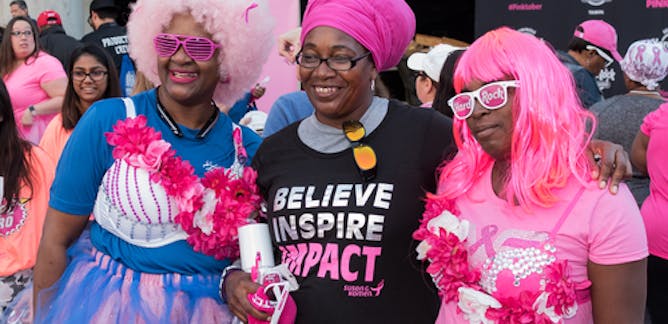
Mary Insana Fisher, University of Dayton
While more women than ever are surviving breast cancer, they often do so with bad side effects. Studies are showing that physical therapy early in the post-treatment phase can help.
| |

Amalio Telenti, The Scripps Research Institute
Body mass index is often used to gauge health. But there may be more accurate measures. A report on your blood metabolites, your metabolome, may distinguish healthier-obese from sicker-obese.
|
|
|
Arts + Culture
|
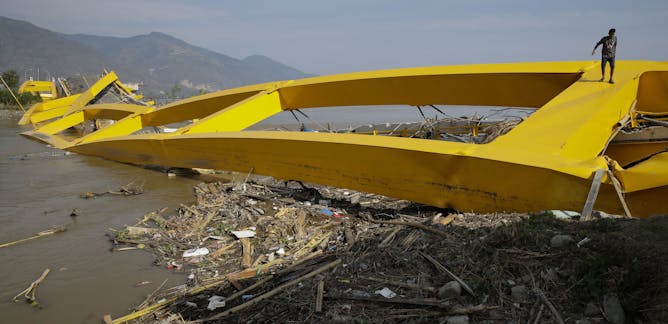
Jennifer Nourse, University of Richmond
The devastation of the recent earthquake and tsunami might be most visible in Palu, the capital city of Central Sulawesi. But the province’s rural areas could ultimately suffer the most.
| |

Joe Essid, University of Richmond
After the first moon landing, the feelings that propelled a unified national mission quickly dissipated. Could Armstrong have played a bigger role in galvanizing the public for future projects?
|
|
|
Ethics + Religion
|

David Mislin, Temple University
The National Council of Churches, which represents 38 Christian denominations, has long been the voice of progressive religion. But over the years, its influence has waned.
| |
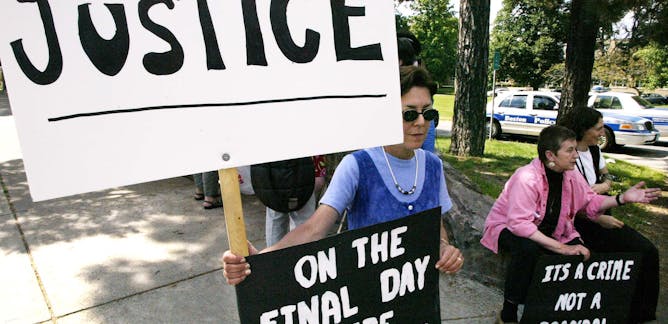
Brian Clites, Case Western Reserve University
While the problem of priestly abuse might be centuries old, its modern paper trail began after World War II, when 'treatment centers' appeared for rehabilitating priests. Many were send to New Mexico.
|
|
|
Politics + Society
|
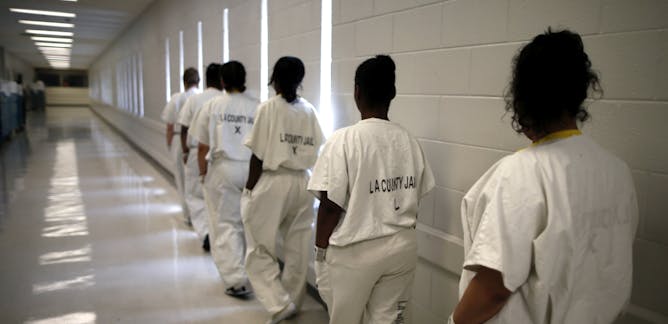
Kevin Wozniak, University of Massachusetts Boston
A new public opinion survey reveals Americans largely agree on sentencing reform, and how money spent on prisons could be reinvested in communities.
| |

Paul Steege, Villanova University
The 'resistance' to the Trump administration has many forms, from grassroots organizing to making music. But a historian of 20th-century Germany asks whether opposing Trump is a real resistance.
|
|
|
Education
|
-
Nicholas Tampio, Fordham University
'Fortnite' – the wildly popular video game – is a dangerously addictive, robs students of precious time and teaches individualism instead of cooperating to survive, a political theorist argues.
|
|
| |
| |
| |
| |
| |
| |
|
|
|
|
|
|
|